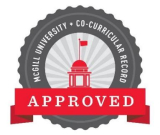 LEAD PROJECTS
LEAD PROJECTS
 Ensure ethical practices in all aspects of research including intellectual property, data management, confidentiality, and collegiality. Demonstrate ethical behaviour: integrity, honesty, and accountability. Learn from mistakes. Practice sustainability and act responsibly with the interests of the larger community and its future in mind.
Ensure ethical practices in all aspects of research including intellectual property, data management, confidentiality, and collegiality. Demonstrate ethical behaviour: integrity, honesty, and accountability. Learn from mistakes. Practice sustainability and act responsibly with the interests of the larger community and its future in mind.
Jump to section: Understanding Ethical & Professional Conduct | Cultivating Ethical & Professional Conduct | Quick Guide to Ethical & Professional Conduct | Taking Action | Resources | References
Understanding Ethical & Professional Conduct
Ethical behaviour is a way of acting according to a set of values dictated by society or by individuals. Ethical and professional conduct is the collection of ethical behaviours in a business context (including academia), where individuals are expected to respect key moral principles such as honesty and fairness, and to abide by the ethical codes and standards of an organization or a profession. [1] (e.g., the American Medical Association imposes a Code of Ethics on physicians regarding interpersonal relationships with staff and patients. [2]
Why does it matter?
Whether you are a graduate student, an employee, or self-employed, ethical and professional norms govern your decision making. [3] At an organizational level, ethical behaviour improves the working environment and reassures all stakeholders of proper management of all operations. [4] The Enron Corporation scandal in 2001 demonstrates how detrimental ethical misconduct can be,[5] as it resulted in the largest bankruptcy in US history at the time ($63.4 billion in assets).
Ethics and moral principles go beyond the professional setting to influence the three pillars of sustainability: society, economy, and environment.[6] The Federal Sustainable Development Act defines sustainable development as meeting “the needs of the present without compromising the ability of future generations to meet their own needs.” [7] Conforming to ethical practices is key in shaping our social behaviours, economic decisions, and environmental awareness, thus affecting the sustainable development of Canadian and global communities. [8][9]
Cultivating Ethical & Professional Conduct
- Associations and organizations often include penalties and/or sanctions in the case of violation. [10] Read the code of conduct at your organization and discuss with your new colleagues or supervisor when unsure about how to proceed in a given situation. At McGill, you can consult the Code of Student Conduct and Disciplinary Procedures.
- When rules are not available, individuals turn to their own moral compass. One would start by identifying a value, such as “courage and integrity” which defines a particular attitude, such as “the courage to do the right things consistently without regard to personal consequences,” which then results in an ethical behavior, such as to make “unpopular decisions based on fair consideration of the facts.” [11]
- To explore an ethical dilemma and decide on the best decision, consider the following steps from the Markkula Center for Applied Ethics 2009:
Utilitarian Approach: Which option produces the most good and the least harm?The Rights Approach: Which option respects the rights of everyone involved?
The Justice Approach: Which options treat people equally or proportionally?
The Common Good Approach: What best serves the community as a whole?
The Virtue Approach: Which action best represents your personal values?
- Make and test a decision: Choose the best approach and ask someone for feedback.
- Act and reflect on the outcome: Think about how to implement your decision by taking into account others’ concerns. Reflect on the impact of your choices and the lessons you have learned from this dilemma.
Quick Guide
- Know and comply with codes, rules, policies, and legal guidelines relevant to you/your position (e.g. intellectual property rules: copyrights and patents) [12]
- Recognize and respect the role and contributions of others (e.g. authorship, data ownership) [13]
- Implement sustainability practices: ensure environmental integrity, social equity, and economic efficiency through innovative approaches [14]
- Sets expectations of and ensure adherence to ethical codes [15]
- Be proactive and socially responsible and advise colleagues and take initiatives in shaping new or existing policies [16]
- Exercise self-criticism, make situational ethical judgements, and challenge unethical behaviours of others [17]
Taking action
- Webinars - McGill CREATE – Professional Skills Webinars: A series of research ethics webinars and recommended readings concerning ethical aspect of the research process.
- Course – My Academic Integrity: Online academic integrity course with eight learning modules
- Check PD.Education for upcoming webinars and related resources. View a list of selected resources and pre-recorded events organized according the McGill categories here.
- Join an ethics committee (e.g., animal ethics committee).
- McGill Office of Sustainability - Get involved: Take part in sustainability projects and initiative to gain experience in sustainable development practices and project management.
- Check myInvolvement for upcoming workshops and programs under “Lead projects: Ethical & Professional Conduct”
Resources
Websites
- Ethics and Compliance Initiative – Knowledge Centre: includes blogs by experts, glossary terms, list of events and others.
- Ethical Decision Making Resources – Santa Clara University: this website offers articles, approaches to ethical decision making, and good practical guidelines.
- McGill Research and Innovation – Ethics and Compliance: Guidelines for researchers working with animals and human participants.
- Integrity and Ethical Practice: GPS Guided Research Practice.
- McGill Research Integrity: Guidelines on the conduct of research activities at McGill University.
- McGill Office of Sustainability: Sustainability strategy, goals and activities at McGill.
- Making an Ethical Decision Web Application – Santa Clara University.
- McGill Keeping it Honest: provides resources to help students avoid dishonest work
Groups & Associations
- Canadian Association of Research Ethics Board: A grassroots organization with professionals sharing best practices on research ethics.
- Humanitarian Health Ethics Research Group: A research group seeks to publish innovative and thought-provoking reflections on issues related to humanitarian healthcare ethics.
- Panel on Research Ethics: A Tri-Council Interagency Advisory Panel aims to collaborate and promote the ethical conduct of research involving human participants.
Books, Articles & Reports
- Swanson, D., (2004). The buck stops here: why universities must reclaim business ethics education. http://mcgill.worldcat.org/oclc/439012320
- Danis, M. (2012). Clinical research consultation: A casebook. Oxford: Oxford University Press. http://mcgill.worldcat.org/oclc/794002200
- In Woodfield, K. (2018). The ethics of online research. http://mcgill.worldcat.org/oclc/1020570628
- Macfarlane, B. (2009). Researching with integrity: The ethics of academic enquiry. New York:
- Routledge. http://mcgill.worldcat.org/oclc/166360218
- Oliver, P. (2010). The Student's Guide to Research Ethics. Maidenhead: McGraw-Hill International (UK)
- Ltd. http://mcgill.worldcat.org/oclc/654029515
- Russell, C., Hogan, L., & Junker-Kenny, M. (2013). Ethics for graduate researchers: A cross-disciplinary approach. Amsterdam: Elsevier. http://mcgill.worldcat.org/oclc/811842104
- Stewart, C. N. (2011). Research ethics for scientists: A companion for students. Chicester: John Wiley & Sons. http://mcgill.worldcat.org/oclc/79432750
References
[1], [11] Creating and Sustaining an Ethical Workplace Culture, Kerns, C.D. (2003)
[2] Medical Ethics. American Medical Association (2018).
[3] Making “sense” of ethical design making. Zeni, T.A. (2016)
[4] Behavioural Ethics in Organizations: A Review. Trevino, L.K. et al. (2006).
[5] Enron: The Perils of Interventionism. Bradley, R.L. (2012).
[6] Sustainability: Ethical Foundations. Thompson, P.B. (2012).
[7] Federal Sustainable Development Act. Ministry of Justice (2013).
[8] Federal Sustainable Development Strategy for Canada. Environment and Climate Change Canada (2017).
[9] Transforming our world: the 2030 Agenda for Sustainable Development. UN General Assembly (2015).
[10] Un(Ethical) Behavior in Organizations. Trevino, L.K. et al. (2014).
[12], [13] Targeted Competencies in Graduate Programs. ADESAQ. (2015).
[14] About Sustainable Development. Quebec Government. (2018).
[15], [16] [17] Vitae Researcher Development Framework. Vitae. (2011).

 As a McGill student, your participation in full to activities such as training workshops and volunteering are tracked on your Co-Curricular Record (CCR)! Having your co-curricular activities listed in one document can help you revise your CV or cover letter, prepare for interviews, and explore career options.
As a McGill student, your participation in full to activities such as training workshops and volunteering are tracked on your Co-Curricular Record (CCR)! Having your co-curricular activities listed in one document can help you revise your CV or cover letter, prepare for interviews, and explore career options.